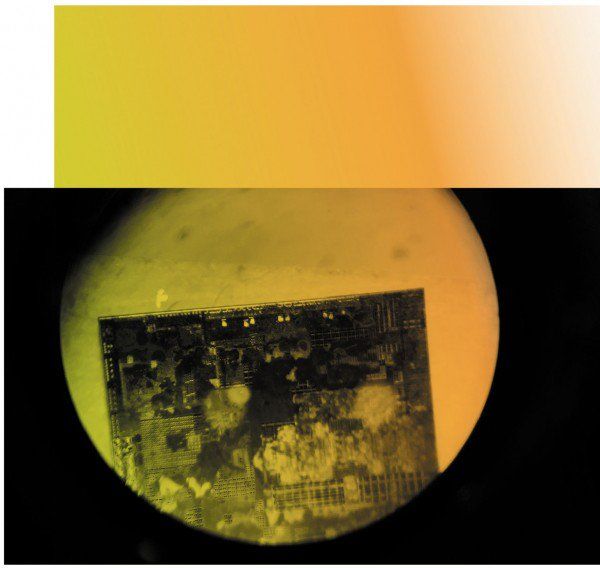One small amoeba found a solution to the traveling salesman problem faster than our best algorithms. What does it know that we don’t?
Category: information science – Page 312

One Giant Step for a Chess-Playing Machine
The stunning success of AlphaZero, a deep-learning algorithm, heralds a new age of insight — one that, for humans, may not last long.

Facial Recognition Tech Aims to Identify Good and Evil
Facial recognition is going mainstream. The technology is increasingly used by law-enforcement agencies and in schools, casinos and retail stores, spurring privacy concerns. In this episode of Moving Upstream, WSJ’s Jason Bellini tests out the technology at an elementary school in Seattle and visits a company that claims its algorithm can identify potential terrorists by their facial features alone.

Mind-Bending Study Suggests Time Did Actually Exist Before The Big Bang
According to a straightforward interpretation of general relativity, the Big Bang wasn’t the start of ‘everything’.
Taking Einstein’s famous equations at face value and making as few assumptions as possible, a team of researchers has rewound the clock on our Universe to find it wouldn’t lead to a stopping point at all, but would take us through a different kind of beginning into a flipped space.
To understand what all the fuss over the Big Bang is, we need to rewind a bit to understand why physicists think it may not have been the start of everything.

5 things to know about DNA tests before you send your spit
Companies use different algorithms based on different sets of data. Most of that data comes from people of recent European ancestry.
The problem, obviously, is that a lot of people don’t have grandparents or great-great-great-grandparents from England or Italy or Denmark. Most people on Earth, actually! That means if you’re from, say, Asia or Africa, you might not get as detailed a profile as you’d like.
My mother, who was born in the Philippines, actually got an update from 23andMe with new information about her heritage. Her history didn’t change. But as the company gets more DNA kits from people of Asian descent, the algorithm churns out modified results. Which is great … but that does mean right now, if you’re not white, you might have to wait a bit longer for more accurate results.

The Yoda of Silicon Valley
Of course, all the algorithmic rigmarole is also causing real-world problems. Algorithms written by humans — tackling harder and harder problems, but producing code embedded with bugs and biases — are troubling enough. More worrisome, perhaps, are the algorithms that are not written by humans, algorithms written by the machine, as it learns.
Profiles in science.
Donald Knuth, master of algorithms, reflects on 50 years of his opus-in-progress, “The Art of Computer Programming.”
Donald Knuth at his home in Stanford, Calif. He is a notorious perfectionist and has offered to pay a reward to anyone who finds a mistake in any of his books. Credit Credit Brian Flaherty for The New York Times.

Forbes publication: Forbes story title: Human 2.0: is coming faster than you think deck: Will you evolve with the times?
Publication: Forbes story title: Human 2.0: is coming faster than you think deck: Will you evolve with the times? section: Innovation topic: artificial intelligence + big data special label: contributor group | Cognitive World author: by Neil Sahota date: October 1, 2018.

A new type of quantum computer has smashed every record
IonQ was founded on a gamble that ‘trapped ion quantum’ computing could outperform the silicon-based quantum computers that Google and others are building. As of right now, it does. IonQ has constructed a quantum computer that can perform calculations on a 79-qubit array, beating the previous king Google’s efforts by 7 qubits.
Their error rates are also the best in the business, with their single-qubit error rate at 99.97% while the nearest competitors are around the 99.5 mark, and a two-qubit error rate of 99.3% when most competitors are beneath 95%. But how does it compare to regular computers?
According to IonQ, in the kinds of workloads that quantum computers are being built for, it’s already overtaking them. The Bernstein-Vazirani Algorithm, a benchmark IonQ is hoping will take off, tests a computer’s ability to determine a single encoded number (called an oracle) when the computer can only ask a single yes/no question.

China has never had a real chip industry. Making AI chips could change that
This is happening in the city of Tianjin, about an hour’s drive south of Beijing, within a gleaming office building that belongs to iFlytek, one of China’s rapidly rising artificial-intelligence companies. Beyond guarded gates, inside a glitzy showroom, the US president is on a large TV screen heaping praise on the Chinese company. It’s Trump’s voice and face, but the recording is, of course, fake—a cheeky demonstration of the cutting-edge AI technology iFlytek is developing.
Jiang Tao chuckles and leads the way to some other examples of iFlytek’s technology. Throughout the tour, Tao, one of the company’s cofounders, uses another remarkable innovation: a hand-held device that converts his words from Mandarin into English almost instantly. At one point he speaks into the machine, and then grins as it translates: “I find that my device solves the communication problem.”
IFlytek’s translator shows off AI capabilities that rival those found anywhere in the world. But it also highlights a big hole in China’s plan, unveiled in 2017, to be the world leader in AI by 2030. The algorithms inside were developed by iFlytek, but the hardware—the microchips that bring those algorithms to life—was designed and made elsewhere. While China manufactures most of the world’s electronic gadgets, it has failed, time and again, to master the production of these tiny, impossibly intricate silicon structures. Its dependence on foreign integrated circuits could potentially cripple its AI ambitions.
